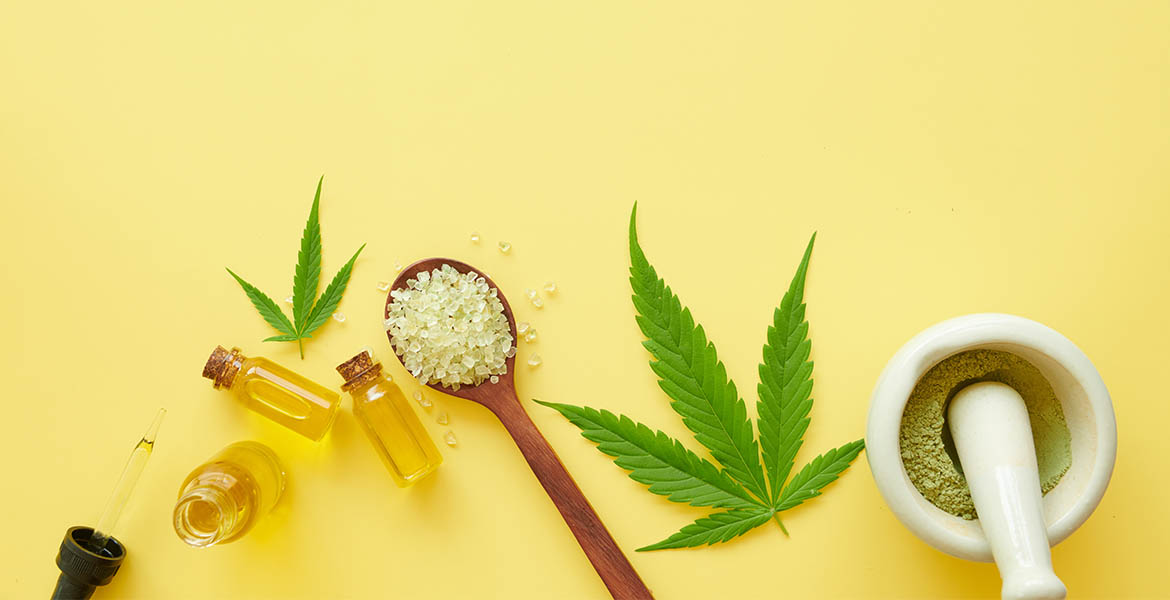Think all-natural skincare merchandise is continually proper for you or the environment? Think once more.
We won't constantly realize it, but the manner we devour products will greatly impact the Earth. In mild of World Environment Day we’re highlighting unsustainable consumption conduct and unpacking the dark facet of ‘all-natural skincare.
For years we have been made to accept as true that artificial elements and chemicals are poisonous, and only herbal skincare materials are worth the use. But in truth, the entirety is a chemical, be it natural or artificial. We are made of chemical substances. So products which are made with synthetic components aren't necessarily terrible for us or our pores and skin.
Just due to the fact something is herbal does not continually mean it’s suitable for you. A substance’s foundation does not imply it really works better or worse on our skin; our bodies cannot distinguish between a chemical that has been obtained from nature or one that has been synthesized in a lab. But the reality is, many natural substances that aren't safe for human use are still used in private care merchandise globally. Natural clays, as an instance, are regularly used in skincare however may additionally contain toxic heavy metals; critical oils, like tea tree and lemon oil, can purpose skin infection, particularly when you have touchy pores and skin.
Why is all-natural bad for the environment?
One of the most complicated aspects about going inexperienced is using the time period ‘natural’. But herbal doesn’t move hand-in-hand with being environmentally pleasant. For starters, herbal elements commonly ought to be flown into production factories from across the globe. This probable generate a bigger carbon footprint than the usage of locally produced artificial substances (that work just as properly, if we may upload). 100% natural substances also have a shorter lifespan, and if they’re not utilized earlier than their expiration date, it could result in a large waste of sources.
"The all-natural splendor marketplace is currently well worth USD 22B, and is predicted to reach USD 48B by using 2025."
But the primary hassle lies with developing patron demand for herbal substances, which has multiplied dramatically in recent years way to the booming all-natural beauty fashion––the market is currently well worth USD 22B, and is expected to reach USD 48B through 2025. To preserve up with the surge in call for, supply for those ingredients has to be improved sharply however as speedy and as affordably as viable. This ends in unsustainable farming practices and corner-cutting, which disrupts ecosystems and depletes herbal assets. And they’re depleting far faster than they are being replenished!
Take palm oil as an example: an exceedingly flexible vegetable oil, it’s used considerably in meals products, cosmetics, and as gas, which is contributing to deforestation, habitat loss, and weather alternate. It is said around half of customer merchandise global include palm oil; this roughly translates to 3 billion humans in a hundred and fifty international locations ingesting it on a day by day basis––without even knowing it, we each probably burn up a median of 8kg of palm oil, consistent with yr!
Yet, boycotting palm oil might not be the be-all-quit-all solution to protective rainforests––it’s definitely an exceedingly efficient crop, generating greater oil in step with the land area than another equivalent (soybean or coconut oil, as an example, desires between 4–10 instances more land for production). Boycotting might consequently just displace the problem, threatening different habitats, species, and groups that rely on palm oil production for his or her livelihoods. As such, it shouldn't be about boycotting all collectively, but about assisting agencies that commit to sustainable and mindful sourcing practices, (for palm oil, start with organizations that can be RSPO licensed) and worrying more motion to address the problems head-on.
World Environment Day: To care for ourselves, we must care for nature.
When it comes to skincare, synthetically produced ingredients, that are safe and clinically examined, are a first-rate alternative to naturally derived ones. It means they have been molecularly replicated in a lab to supply the same, if not higher, consequences––this additionally makes it vegan! Vitamin A, for instance, that is observed in animal and plant sources, may be reproduced in controlled lab surroundings and examined substantially for protection and efficacy.
For us, understanding where our elements are sourced from through obvious delivery chains, and the way they're produced is our pinnacle precedence. Our philosophy is based on retaining a balance between nature and technology to discover the right match for customers and the environment. Whether plant-derived or synthetically produced, we best use substances that are indexed securely by the Environmental Working Group (EWG rating).
"Our philosophy is based totally on maintaining a balance among nature and technology to locate the right in shape for users and the surroundings."
While this philosophy is fundamental to how we produce the whole thing at Yours, this became a guiding precept when creating Clean Slate Exfoliating Pads – our new BHA-primarily based chemical exfoliant powered via plant-primarily based extracts – specifically thinking about there are still a lot of misconceptions surrounding skin exfoliation.
For as long as we can keep in mind, natural exfoliants had been all the rage––walnut scrubs, sugar scrub, apricot scrubs, and so forth and so forth. But the fact is, bodily exfoliants filled with natural components, like fruit pits and nutshells, are too abrasive and will be inclined to purpose micro-tears on the pores and skin. Other bodily exfoliants contain non-biodegradable plastic microbeads, which emerge as contaminating oceans and harming marine life. Fortunately, microbeads have been banned by greater than a dozen nations globally, which include the USA, the UK, Canada, France, New Zealand, and Taiwan.
Chemical exfoliants, then again, are a lot gentler at the skin and have a miles smaller environmental footprint. They contain acids or enzymes which eliminate lifeless skin cells and useful resource cellular turnover. There are some unique forms of acids – such as AHAs (alpha-hydroxy acids), BHAs (beta-hydroxy acids), and PHAs (Poly Hydroxy acids) – which do various things for the pores and skin. One of the most common sorts is oil-soluble BHAs (which you’ll find in our new exfoliant pads). They penetrate deeper layers of the pores and skin and pore-lining to exfoliate from inside and feature skin-soothing homes.
As we wrap up, right here’s what you should eliminate from this blog:
1. The Earth's resources are finite. To meet growing client demand, herbal resources are depleting faster than they're being replenished, destroying ecosystems, habitats, and the environment.
2. Consume consciously. All-natural isn't always continually the manner to move––earlier than shopping any product, don't forget all viable methods it can affect you and the environment.
3. Synthetically-produced substances can be more secure alternatives. Not all synthetics are toxic, they can often be a whole lot more secure for you and the Earth, than natural elements.
4. Support sustainable practices. We want to assist sustainable farming and sourcing practices and commit to sustainable consumption habits as properly.
The Environment Matters
At Yours, considered one of our subculture values is: Environment Matters. It guarantees that our commitment to sustainability touches each factor of our commercial enterprise; it defines our everyday selections, how we build merchandise, and how we train ourselves and our users.
This naturally has become the start line while developing Clean Slate and its packaging layout, which is dedicated to developing focus across the actual price of all-natural products, and how it can adversely affect the surroundings. With the unboxing revel in being surely personal to every man or woman and the physical product because the most tangible contact-point in the palms of the consumer, we've got leveraged the distance to carry environmental troubles to the leading edge, so we can all make greater knowledgeable decisions.











Comment
No Comment Here